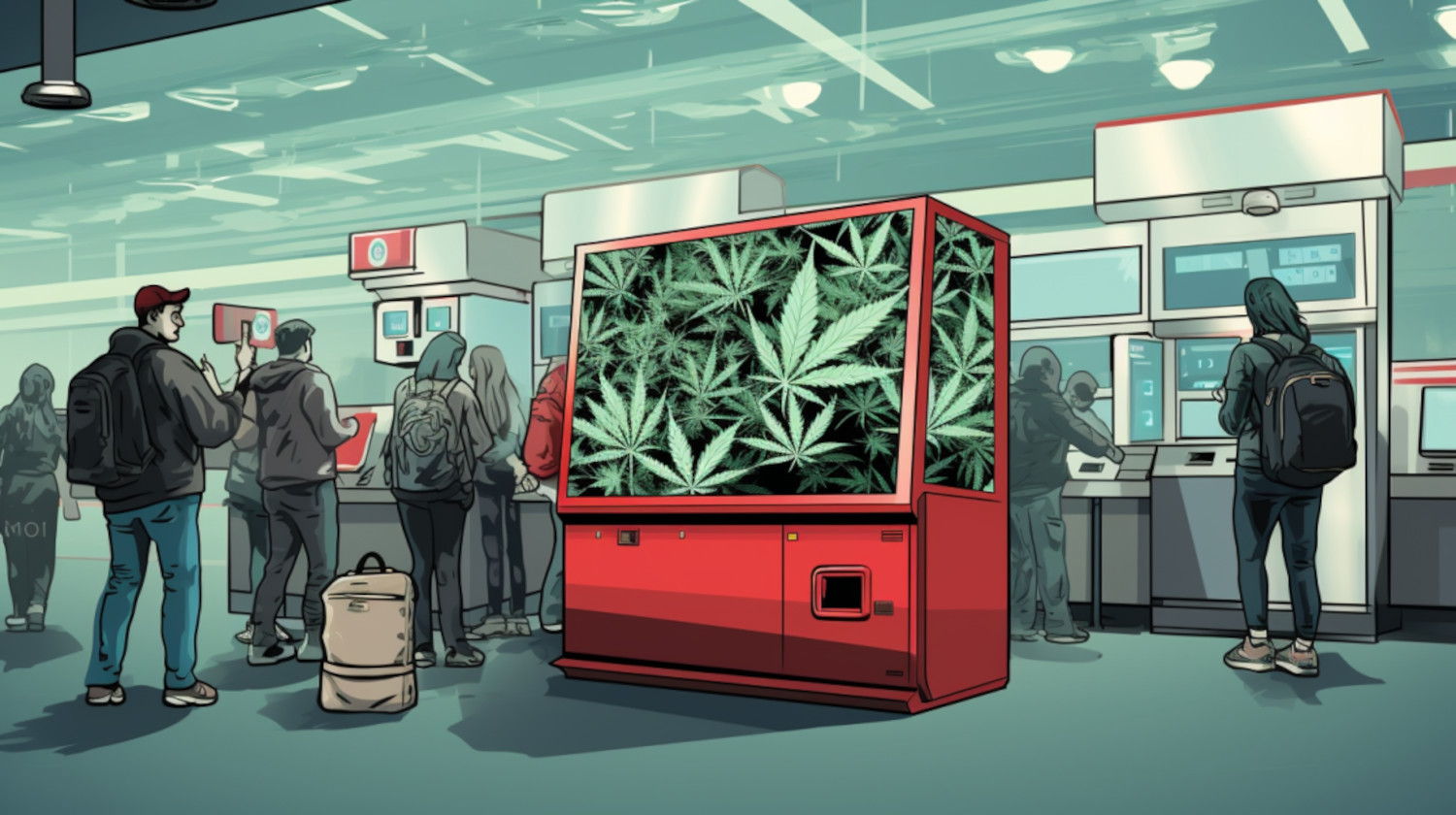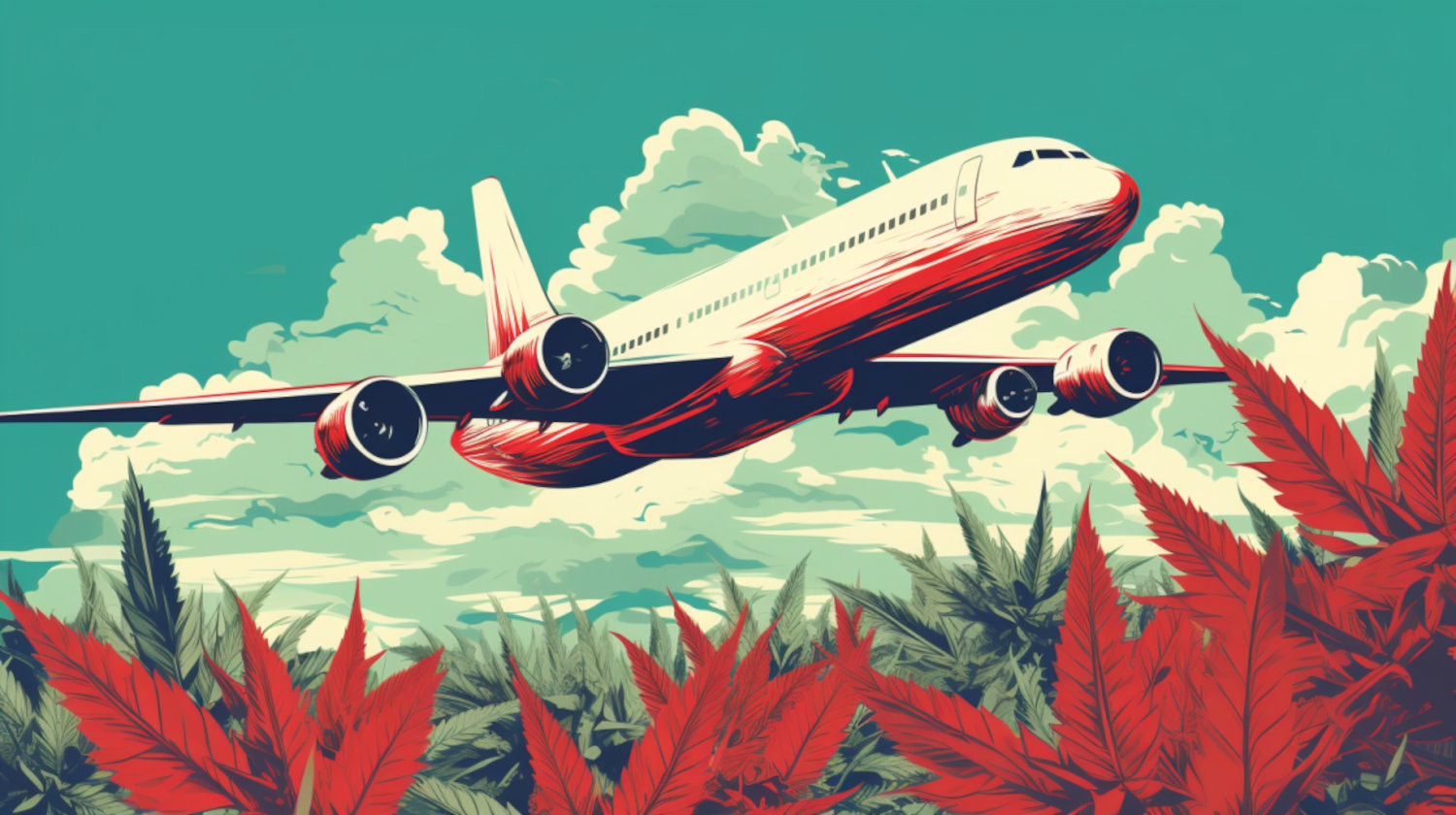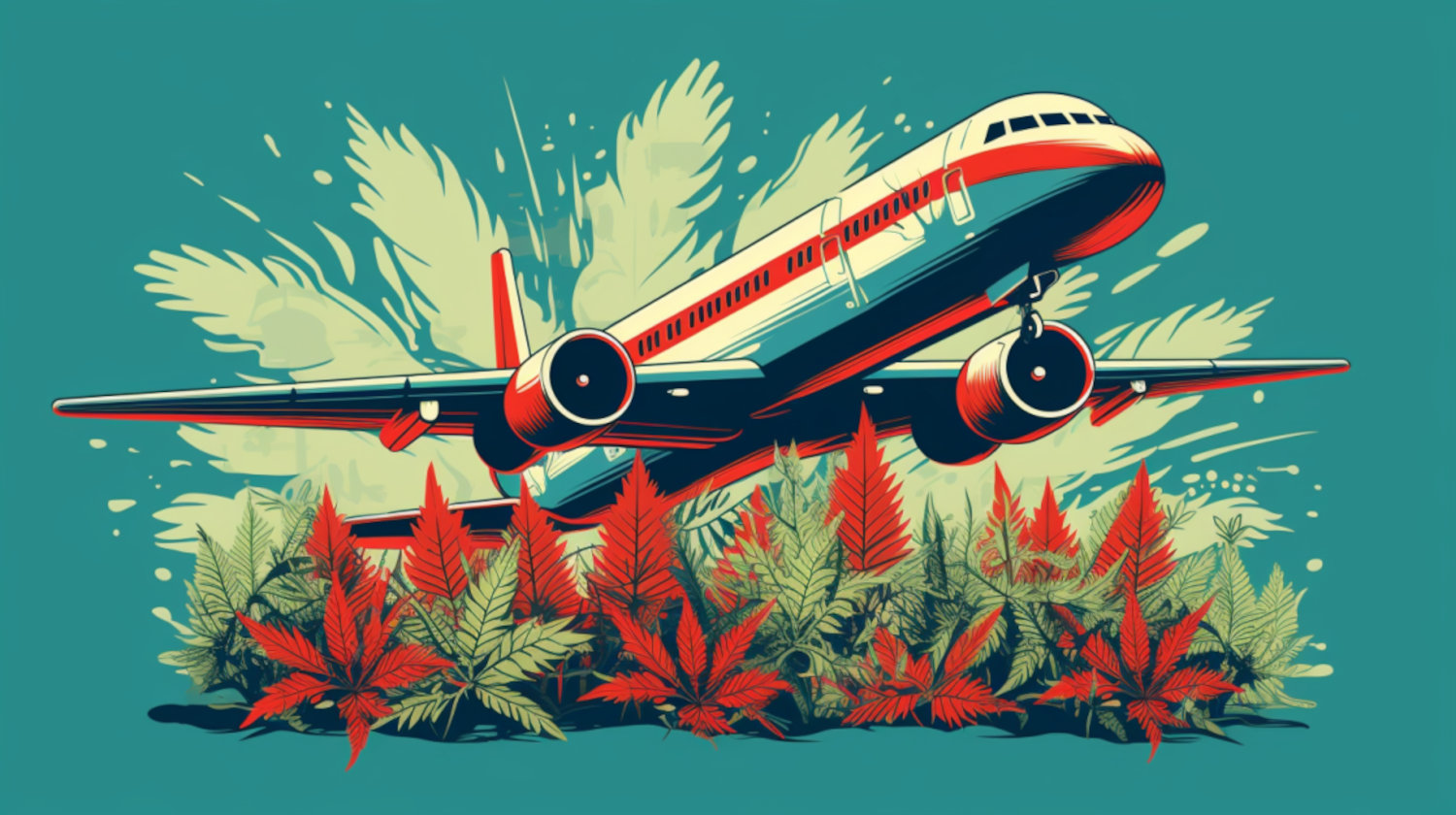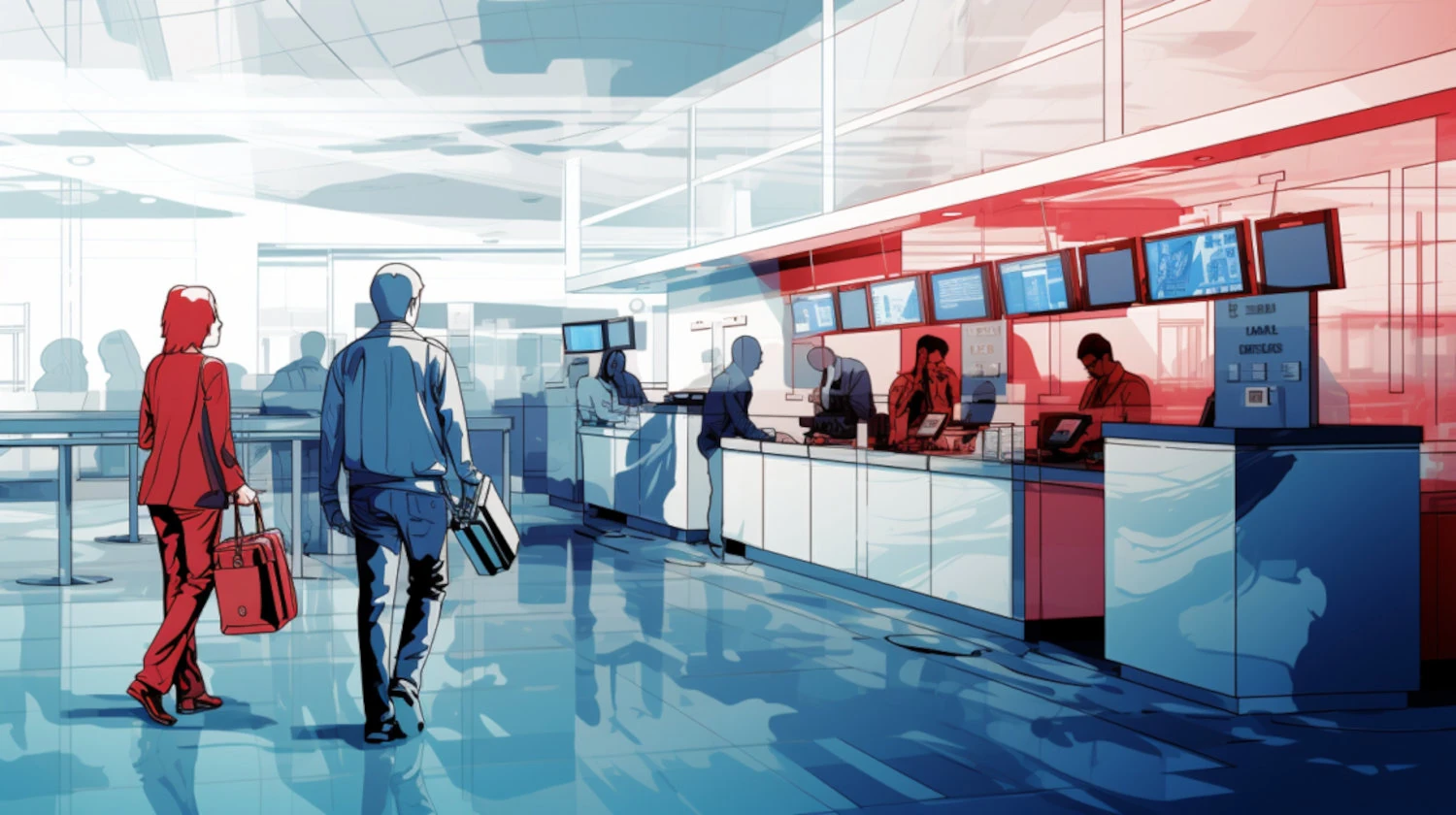Cannabis legalization is spreading across the United States and many other countries. Despite the growing legal trend, cannabis remains illegal in America on the federal level. As such, flying with weed is a bit risky, even if one or both states in your travels have legalized weed. If you’re at the airport with cannabis products that you don’t want to travel with, look for a cannabis amnesty box.
What is a Cannabis Amnesty Box?
Cannabis amnesty boxes are a simple and efficient solution for travelers with flower, edibles, and other cannabis products that they don't intend to bring with them on their flight. Instead of traveling through security with some flower or other cannabis-based product, travelers can dispose of their products in the box. As the name implies, any cannabis placed in the box falls under an amnesty clause, providing the traveler with no risk of criminal punishment.
Cannabis amnesty boxes are legal and have been modeled after similar boxes used around the world at airports and various public gatherings. Amnesty boxes may also provide safe and legal disposal spots for multiple prohibited items, including drugs, weapons, forbidden foods, and animals.
Travelers can spot a cannabis amnesty box with relative ease. Boxes are typically the size of a garbage can and are vividly colored – often blue or green. A “cannabis amnesty box” sign should be clear and attached to the front side of the can. The seal of the city or state should also be found on the box, further confirming the legal nature of the disposal unit.
Where are Cannabis Amnesty Boxes Located?

While legalization has spread across America, cannabis amnesty boxes haven't done the same. To date, only a few US airports have installed cannabis product amnesty boxes. They are:
- O'Hare International Airport (Chicago)
- Midway International Airport (Chicago)
- Harry Reid International Airport (Las Vegas)
- Colorado Springs (Colorado)
- Aspen County Airport (Colorado)
- Pitkin County Airport (Colorado)
Additional amnesty boxes may have been installed or plan to be installed in more US airports, but with no database or tracking in place, the best bet is to check the airport's website ahead of time.
Also, remember that not every amnesty box is intended for cannabis. In destinations like Hawaii, Australia, and New Zealand, it’s probable that an amnesty box could be for agricultural items. While cannabis is a product of agriculture, these boxes are typically geared towards invasive plants, seeds, specific fruits and vegetables, and animals.
Should I Use a Cannabis Amnesty Box Even in Legal Recreational States?
Anyone worried about getting caught traveling with cannabis should consider using a cannabis amnesty box if one is available to them. While adult-use cannabis laws have been adopted in much of the United States, federal law still prohibits the plant, including traveling with any of its products. That said, not every airport adheres strictly to federal guidelines.
Portland Oregon is a legal cannabis hotbed. However, Portland International Port Police will still seize recreational cannabis on trips over the state line if found. Medical cannabis travelers with a valid state-issued card are allowed to pass through security with a legal quantity of cannabis. Keep in mind that travelers could still face consequences if caught, depending on their destination state.
At Los Angeles International Airport, APD officers are not allowed to arrest any traveler who is carrying a legal limit of up to 28.5 grams of cannabis flower and 8 grams of concentrated oil. However, LAX warns travelers that the Transportation Security Administration (TSA) screening stations fall under federal jurisdiction, which could lead to criminal penalties, including asset seizure, fines, and possible jail time.
Regardless of the differing policies in some airports, federal law remains clear on cannabis: it's illegal. Because the TSA holds the keys to air travel and the skies remain federal jurisdiction, traveling by plane with cannabis is illegal. That's why these boxes exist. They give people an option to dispose of their cannabis where it's still legal before breaking federal law.
Despite the ongoing prohibition, many people have chosen to overlook the amnesty box and travel with their preferred products. Reports have found that TSA agents sometimes ignored items, notably edibles, that could be easily confused as non-infused products.
In other cases, people have been stopped and searched. Those found with cannabis products can face a range of consequences, including arrest and federal or state charges. Sometimes, consumers report having their products seized but are still allowed to travel.
TSA provides further clarification on its website, stating that officers may report suspected cannabis violations to local, state, or federal authorities. It also notes that screenings are intended to detect possible flight and passenger safety threats, not cannabis. While they won't deliberately search for cannabis, any substances found during a screening can be reported.
Potentially confusing the issue further, TSA notes that the final decision rests on the TSA officer. Be kind and respectful when passing through security, especially if you didn't put your cannabis products in an amnesty box.
Should I Use a Cannabis Amnesty Box If I Have an MMJ Card?

In some places, medical marijuana cardholders do have more leeway when it comes to travel in the US. Airports, such as LAX, may allow travelers to pass through security checkpoints and keep their medication as long as they have the proper ID to confirm their identity and active status in the state medical program.
While some airports say they allow medical cannabis within their borders, not every state has the same policy. In addition, TSA agents are still under federal jurisdiction and may defer individuals to local law enforcement or simply tell the passengers they must throw their cannabis products away.
If you’re unsure how an airport will handle the matter, start by checking the airport’s website for answers. Many airport websites now have sections and FAQ answers dedicated to cannabis for medical and recreational purposes. Don't forget to check the rules in the state you’re traveling from and where you’ll be landing.
Remember that until the US federal government changes its laws regarding medical cannabis, it remains a schedule 1 substance, making it illegal to possess under any circumstances. Since air travel is under the jurisdiction of the federal government, bringing medical cannabis on a plane remains illegal. To make matters worse, crossing state lines with cannabis is classified as federal drug trafficking, and brings with it the potential for serious penalties.
It's best for medical cannabis patients to research which states accept out-of-state med cards or have adult-use recreational cannabis programs, so they can legally access cannabis once they arrive. It's a much safer bet than trying to travel with cannabis.
The rules can become more restrictive when flying outside the US, as international laws remain in place and you must pass through the country's border patrol. While you may experience some leeway in legalized nations, there is a significant probability that travelers could face various penalties ranging from arrest to being denied entry into the country. Similar to interstate travel, check the rules and regulations of every destination before you travel.
What About CBD Products?
CBD is legal throughout many countries, making travel with it seemingly easier than with THC products. US travelers must follow federal guidelines, which cap CBD products at 0.3% THC. Products that meet this rule and don’t exceed any liquid or product size thresholds are allowed to travel with their CBD.
International travelers have more to consider, and it’s important to be aware of each country's laws. In the United States, the legal threshold for THC in CBD products is 0.3%. However, depending on the destination, the law could permit higher percentages or restrict its presence more than in the United States. This is true for any country part of the European Union, where CBD with 0.2% of THC or less is legal.
If you plan on traveling with CBD, know the laws and travel with the documentation to support your product's formulation. If you’re traveling to a country with a legal CBD market, consider buying a product from a licensed retailer upon arrival to ensure you won’t run into any security issues at the airport.
Are There Cannabis Amnesty Boxes for Piers or Ports?

Despite widespread water travel, a majority - if not all - piers and ports have yet to adopt amnesty boxes for cannabis.
While subject to federal laws, pier and port security varies depending on what type of vessels dock and depart from their site. This is by no means an invitation to test that security, and it's always best to play it safe.
Cruise travelers may want to be particularly careful, especially in international waters. As some reports have suggested, even medical passengers can be kicked off their cruise if security finds cannabis of any kind. If caught, the ejected parties must arrange flights back to the US. Cruise lines are also required to follow the laws of the country in which they are registered, many of which do not allow legal cannabis products of any kind, including US federally legal CBD.
While amnesty bins are rare at piers and ports, some cruise lines may have boxes installed. Check with the company before embarking on your cruise to ensure your trip won’t be cut short.
The information in this article and any included images or charts are for educational purposes only. This information is neither a substitute for, nor does it replace, professional legal advice or medical advice, diagnosis, or treatment. If you have any concerns or questions about laws, regulations, or your health, you should always consult with an attorney, physician or other licensed professional.




